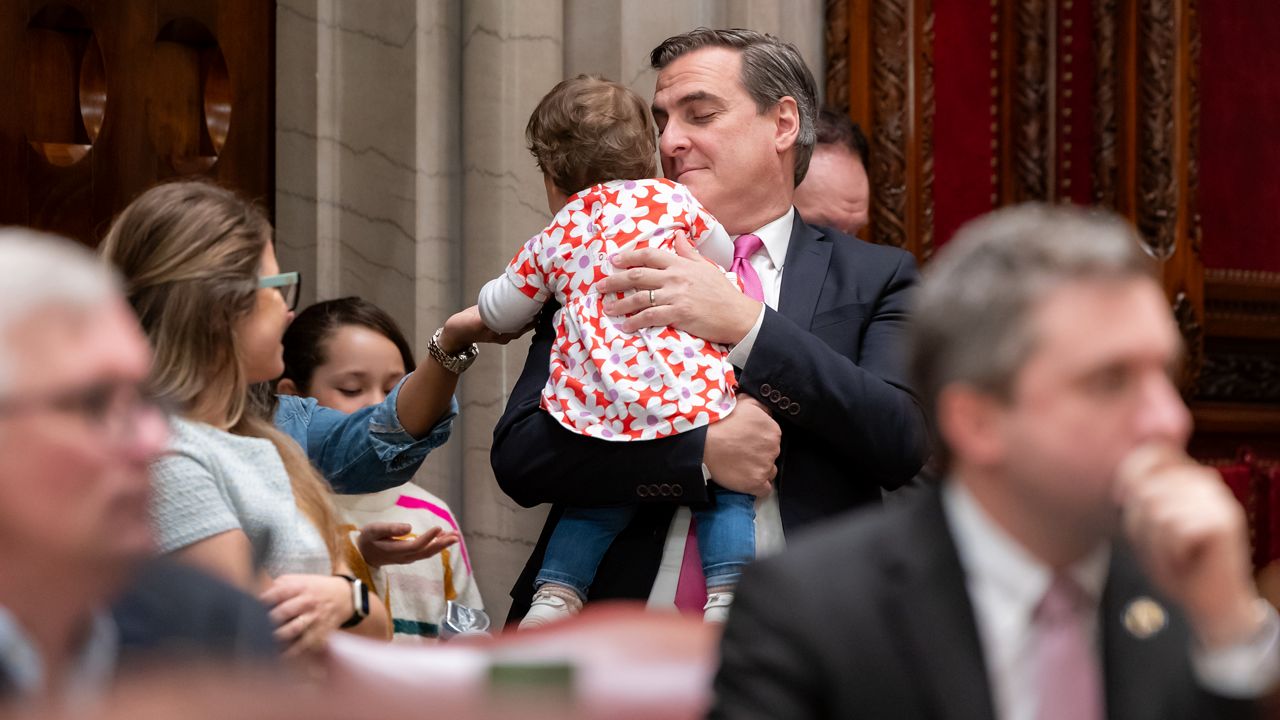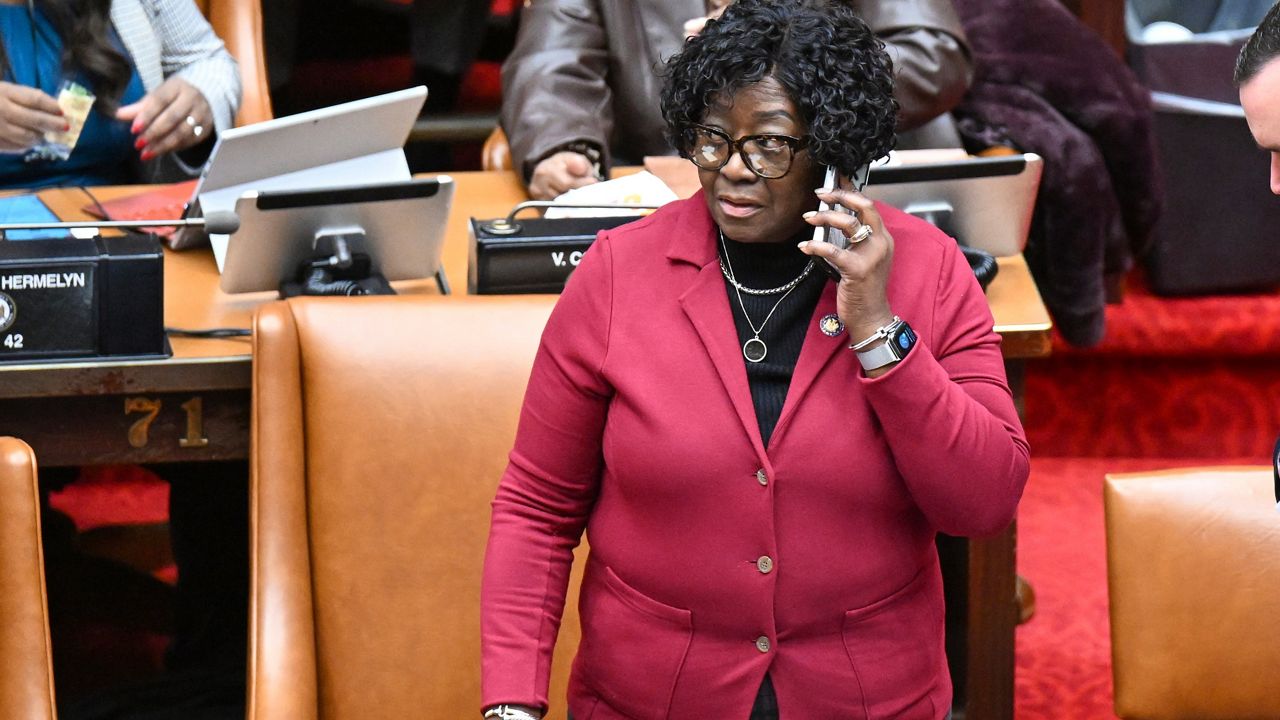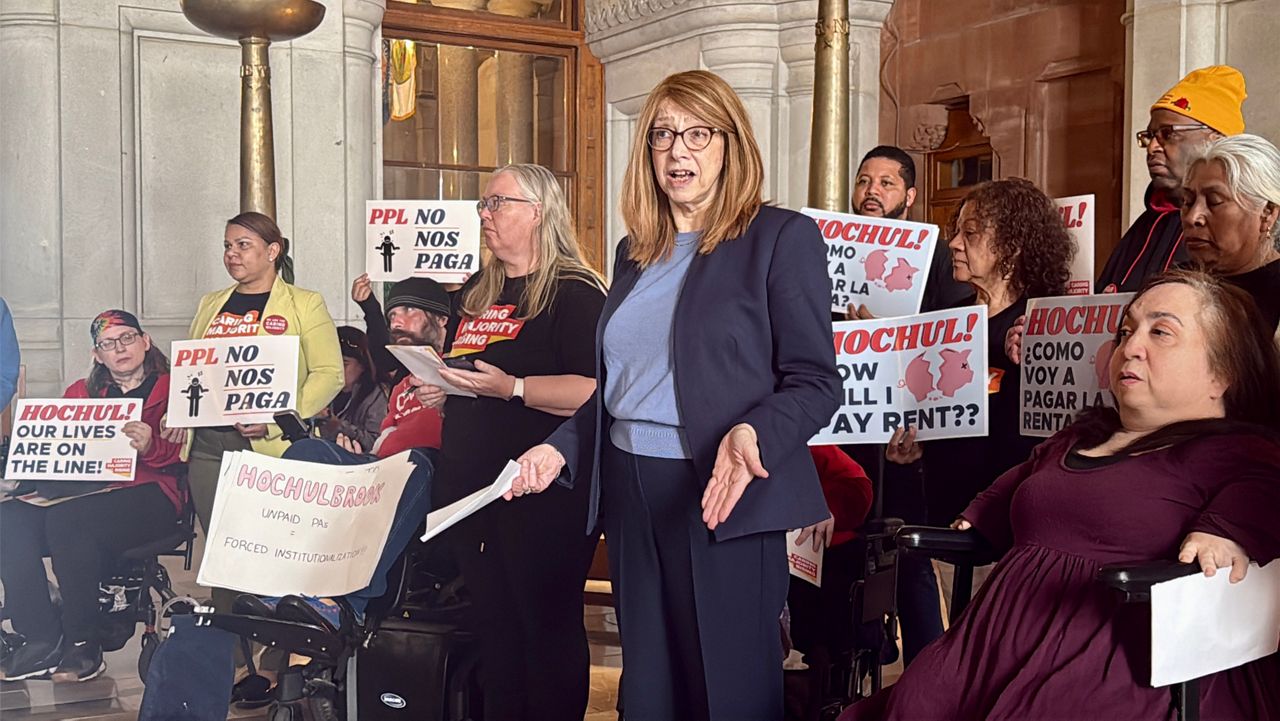With a compromise on discovery changes in reach, New York state leaders are expected to return their attention to Gov. Kathy Hochul's controversial proposal to expand forced psychiatric treatment for New Yorkers with severe mental health conditions.
Religious leaders from around the state rallied in the Capitol on Tuesday opposing the governor's plan to change involuntary commitment criteria — a stance most Democrats in the Legislature have taken since Hochul announced her policy agenda in January.
"I have seen what happens when people go without proper treatment, when people are discharged without the proper guidance and connection to community resources," said chaplain Victoria Phillips, CEO of Visionary Ministries. "...This governor has a duty to stand up and make sure all constituents are protected. I just want to say forced treatment is not the answer. When people are not given the proper resources, they cannot thrive."
Hochul is standing firm on her top budget priority to make it easier to commit a mentally ill person who poses a risk to themselves or others into a hospital for treatment. She wants to clarify the information clinicians should consider, including a person's inability to provide things such as food, clothing, medical care, safety or shelter when deciding a person's condition would "result in serious harm."
Critics argue there's inadequate services to force people into, and won't improve public safety.
"You can't send more people to hospitals when all the hospital is able to do, at best, is de-escalate and then send people on their way to what?" said Ruth Lowenkron, New York Lawyers for the Public Interest's director of disability justice. "What are you solving? Let's be realistic."
Hochul said at an unrelated event in Kingston on Tuesday that her involuntary commitment changes were once viewed as dead on arrival, but leaders have made progress.
"[We're] making sure that we have standards in place so we can take people who really need help to ensure they get the support they need at a hospital," the governor told reporters.
The involuntary commitment proposal debate took a backseat to other criminal justice reforms in the last week, but legislative leaders say conversations about the policy continue at the staff level.
State Senate Deputy Majority Leader Michael Gianaris told Spectrum News 1 that the governor's office, Senate and Assembly have exchanged budget language about the issue, but need to settle on a compromise.
"We would like to get it done and hopefully the other two parties do too, and we can get there," he said of a final budget deal.
Lawmakers passed a fifth budget extender Tuesday, making the annual spending plan more than 15 days late.
Mental health advocates who rallied with the religious leaders said the budget should include more funding for supportive housing and other services.
Both the Senate and Assembly want over $20 million to implement Daniel's Law, or create crisis teams across the state to assist emergency calls.
Forced inpatient treatment disproportionately impacts people of color.
Assembly Mental Health Committee Chair Jo Anne Simon said while there are open beds in the state, it's often difficult for people who are eligible for psychiatric care to get it.
"So where are they? They're without services and they're in the subway or on the street," Simon said.
The assemblywoman said the involuntary commitment standard was designed for a hospital.
"It's very difficult to take a standard that works in a hospital situation and import it to the street and ask police to figure that out that they've trained," she added.
The governor has said she'll stand her ground as long as it takes on her hard-line budget priorities aiming to improve public safety — including changing involuntary criteria.
But lawmakers at the forefront of the mental health fight say they also won't back down.
"I'm prepared to go until May," Simon said.












